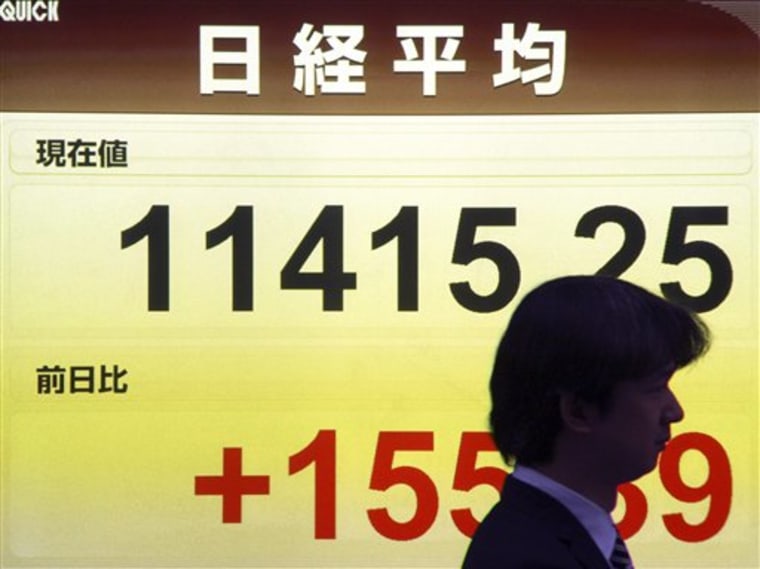Most Asian markets bounced back Wednesday on hopes that a $700 billion bailout for the U.S. financial system will soon win legislative approval, although doubts persisted about the outlook for the global economy.
Japan’s Nikkei 225 index, the benchmark for Asia’s biggest bourse, gained 108.40 points, or 1 percent, to close at 11,368.26. On Tuesday, it plunged 4.1 percent to its lowest in more than three years on disappointment that the U.S. House of Representatives had rejected the bank rescue package.
Australian stocks rallied, with the benchmark S&P/ASX-200 index jumping 4.2 percent after sinking 4.3 percent Tuesday. Markets in Taiwan and India also gained.
Otherwise, regional reaction was muted because several markets were closed for holidays, including those in Hong Kong, mainland China, Singapore, Indonesia, Malaysia, and the Philippines.
In early European trading, markets were mixed. Britain’s FTSE 100 was up 1.4 percent, but Germany’s DAX was down 0.1 percent.
Investors took heart from the rebound on Wall Street Tuesday amid expectations that lawmakers will salvage the rescue plan aimed at cleaning up the bad debt mess at banks and other financial institutions. The U.S. Senate was to vote Wednesday on a revised bailout plan, with a House revote expected later in the week. In New York, the Dow Jones industrial average surged nearly 500 points after plunging 777 points on Monday.
But analysts warned that new worries were already starting to emerge about possible compromises that might be included in a reworked emergency package, raising questions about how effective it may be when implemented.
“The market is already expecting the plan to pass. The question now is what’s next,” said Norihiro Fujito, senior investment strategist at Mitsubishi UFJ Securities Co. in Tokyo.
Investors are still concerned about declining U.S. housing prices and the overall U.S. economy — a vital export market for Asia — especially as they look ahead to the Christmas shopping season.
Major Japanese companies, including electronics and autos, are counting on solid exports to the U.S. to keep up profits, Fujito said.
“Gloomy times are expected to continue for some time,” he said, adding that a turnaround in Japan’s market couldn’t be expected at least until the latter half of next year.
A key quarterly survey from the Bank of Japan showed that major Japanese manufacturers are the most pessimistic they’ve been in five years. The “tankan” survey, which polls 10,000 companies across Japan, also showed lower profit forecasts and a cut in projected capital spending.
The report’s most-watched figure, the sentiment index for large manufacturers, fell to minus 3 in September from 5 in June. The number represents the percentage of companies saying business conditions are good minus those saying conditions are bad.
Elsewhere, Taiwan’s stock market recovered from its drop to close up 0.8 percent. South Korea’s Kospi lost its earlier gains and fell 0.6 percent to 1,439.67.
The dollar’s recent recovery, which tends to be a boost for Japanese shares, also encouraged some buying during Wednesday’s Tokyo session. The dollar recovered to 105.97 yen in the afternoon, up from about 104 yen earlier in the week.
Anthony Huang of Taiwan Securities said investors remain uncertain about the package. And even if the bailout passes doubts remain about the future of Asian economies.
“Taiwan can’t be doing well if consumers in U.S. and Europe are not spending enough.” Huang said.
